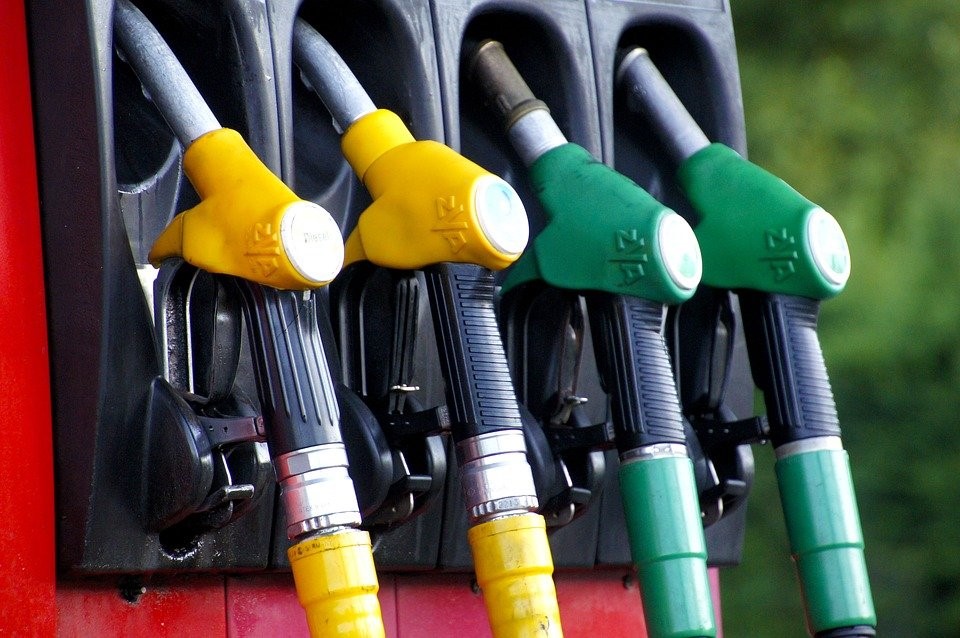Maximizing vehicle mileage is important for fleet owners who want to minimize operational costs and improve profitability. There are a lot of ways you can improve the miles per gallon of the vehicles.
We have put together for you the 8 best tips for improving truck mileage so that you can save costs and increase profitability.
1. Aerodynamics
Many experts suggest that a bed cover can help improve the aerodynamics of the vehicle. With a bed cover installed, the air will flow more efficiently resulting in less friction faced by the truck. Instead of flowing into the bed, the air will flow smoothly over the cover and off the back.
Airflow directly into the bed exerts pressure on the tailgate. This results in more friction that causes the vehicle to consume more fuel.
Another way to improve the aerodynamics of the vehicle and reduce the consumption of gas is by not using roof racks. A load on the roof creates additional drag that results in increased fuel consumption. So, you must avoid roof racks to improve the aerodynamics of the truck as well as improve gas mileage.
2. Recommended Fuel
Using the recommended fuel will help in getting the best performance from the truck. A common notion is that one must use a premium quality for optimum engine performance. The fact is, you should always use the oil that has been recommended by the truck manufacturer.
Auto manufacturers test the vehicles to determine the ideal fuel type. If the truck manual says you need to use unleaded oil or the cheapest gasoline, you should follow the instructions to the letter. The manufacturers know their vehicles and are in a better position to know about the best fuel for the truck. Using the manufacturer’s recommended fuel will result in the best mileage and performance.
3. Regular Oil and Filters Change
You should change the engine oil and filters as suggested by the vehicle manufacturer. The engine oil is an essential component of the vehicle that keeps it lubricated. Filters are also an important component that needs to be inspected and changed, if required. A dirty filter will choke the engine as it will prevent the proper flow of air. This will result in reduced mileage of the vehicle.
You need to get the oil and filters changed after regular intervals. Not only will it ensure proper operation of the engine, but it will also result in improved gas mileage. Replacing the engine oil and fuel filter on a regular interval will also increase the lifespan of the engine.
An engine that remains properly lubricated with free flow of air will perform efficiently. You will get better performance and mileage from the vehicle. It will also reduce maintenance costs due to reduced wear and tear.
4. Check Tire Pressure
The improperly inflated tire can reduce the gas mileage of the vehicle. A vehicle with properly inflated tires will consume less fuel. This is because proper inflation will ensure that the vehicle will run smoothly with less friction.
The friction of any sort either due to load or low tire pressure can hurt the vehicle economy. Minimizing friction is important to ensure optimum gas mileage.
Low tire pressure will also decrease the life of the tire. It will increase the risk of a tire blowout causing a dangerous incident. To avoid such incidents and ensure improved gas mileage, it is important to check the tire pressure ideally every day. Make sure to check the tire pressure before a long drive.
Tire pressure should be checked before the drive when the tires are not warm. Maintaining a tire will prevent blowout and reduce gas consumption.
5. Keep a Safe Distance
Truck drivers should maintain a safe distance from other vehicles while driving. This is not just a safe practice but it will improve the gas mileage as well. Keeping a safe distance from the vehicle will allow smooth adjustment when the car stops suddenly.
If truck drivers drive too close, they will be forced to brake hard. Frequent brakes and acceleration at an erratic pace increase the gas mileage. By keeping a distance from other vehicles, the drivers can better plan the emergencies.
6. Avoid Idling the Vehicle
If you’re stopped and your car is simply idling, it might be best to shut the car off. The general rule of thumb is, if you will idle your car for longer than 3 minutes, you should simply shut the vehicle off. Newer model cars don’t need to “warm-up” before you start driving, so forget about that. Of course, for comfort reasons, you might still want to do that during a cold day such as when you’re about to go snow driving. Just remember, your car gets zero miles per gallon when idling.
7. Avoid Overloading the Truck
Some truck owners overload the vehicle to save costs. They go over the allowed load recommended for the truck. But this increases the weight of the vehicle results increased strain on the engine.
An engine that works double the normal operating performance will undergo accelerated wear and tear. It will require more fuel resulting in increased mileage.
8. Regular Vehicle Washing
Regular fleet washing is also recommended to improve gas mileage. A clean and waxed vehicle allows smooth airflow and reduces friction. There will be less air resistance if the surface of the vehicle is clean. The result will be improved gas mileage.
In an episode of MythBusters, Adam and Jamie drove a dirty alongside a clean car to find out if it makes a difference in fuel average. They found that it increased the mileage by about 3 mpg. Keeping your fleet in good condition will result in improved mileage and profits.
The Mobile Turtle has a team of experienced professionals that will come to your place to wash the trucks. We provide exterior and interior detailing for vehicles all over the US. We charge just $1 for the first fleet wash to earn your trust. Contact us today to know more about our fleet washing and detailing services.


Recent Comments